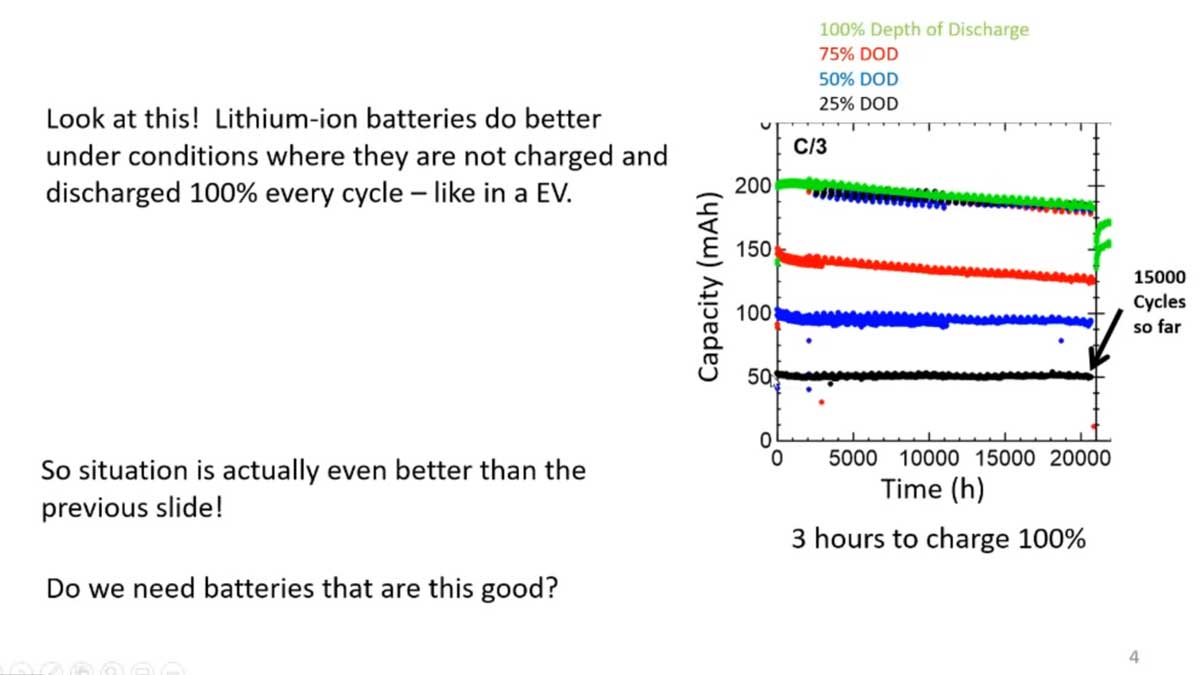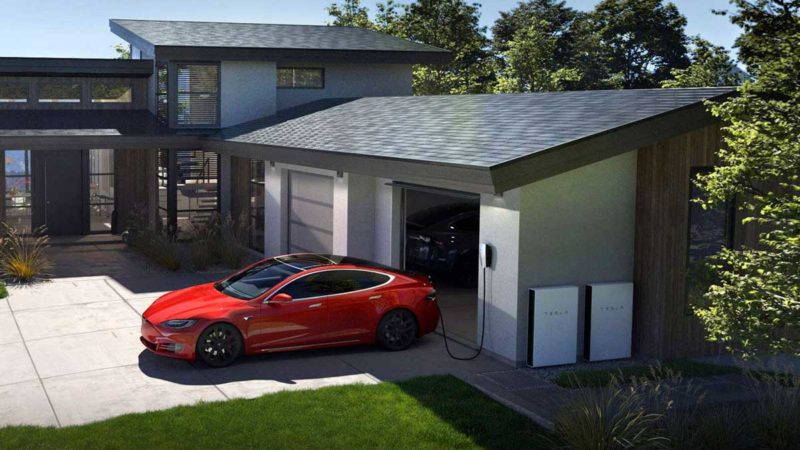The head of Tesla’s battery research team, Jeff Dahn, says that a 2 million mile (3.6 million kilometre) battery is not only possible, but will be necessary if car batteries are embraced to provide storage for the grid.
A paper published in 2019 by Dahn’s team that referenced a potential “million-mile battery” sparked a huge amount of speculation about what Tesla would use a long-life battery for, such as a planned “robo-taxi” fleet.
Although the million-mile battery didn’t end up being the focus of Tesla’s Battery Day in September (Tesla boss Elon Musk and tech lead Drew Baglino instead unveiled the new 4680 battery), Dahn says a long-life battery is still an absolute requirement for a range of reasons.
These included harnessing the potential of EVs as mobile batteries for the grid (known as vehicle-to-grid, or V2G), leasing big batteries to energy providers, avoiding the need to recycle batteries, and using in high cycling applications such as electric ferries and planes.
During an Energy Storage & Sustainable Engineering conference with fellow researcher Lukas Swan (and that you can view at the end of this story), Dahn explained that the Dalhousie team had shown batteries that mainly only do partial charge and discharge cycles can cycle as much as 15,000 times with “absolutely no loss”.

That equates to around 3.5-3.6 million kilometres, says Dahn, adding, “Do we need batteries that are this good? Is it really necessary?”
Yes, he says. At the top of the list of applications, Dahn says that implementation of vehicle-to-grid technology is a big reason to develop long-life lithium-ion batteries.
“They [energy companies] should be paying you for this, for being able to store energy in your battery and recover it when they want,” he says.
While there are a few vehicles that already have V2G charging capabilities (such as the Nissan Leaf), Dahn says it is not advisable with current lithium-ion EV batteries which can only cycle a few thousand times, “because your battery might do a couple of partial charge and discharges while it’s just sitting there.”
Dahn’s comments contrast to Tesla’s own stance on V2G – although a motherboard teardown in May suggested Tesla is future-proofing its cars for V2g, it subsequently proved to be jumping the gun.
Musk himself has been luke warm on V2G, saying on Battery Day that: “Vehicle-to-grid sounds good but has much lower utility than people think.”
But the potential for V2G is huge, says Dahn, because it would mitigate the need for masses of large scale “big batteries”.
He notes: “When you have lots of EVs plugged in then you don’t need so many large scale grid storage facilities.”
Dahn also says that larger vehicles that have predictable routines and are mostly parked during the middle of the day – such as an electric school bus.
“With a long-life lithium-ion battery it makes enormous sense,” he says.
Using long-life batteries for large-scale energy storage also presents some interesting considerations, says Dahn. If a big battery is charged and discharged once a day, a 10,000 cycle life means it could last 25 years before needing replacement – so is leasing it a better option for the seller, who would get a better return for every extra year the battery lasted.
Long-life batteries would also be more suitable to second-life applications after depleting their usefulness in an EV, says Dahn, as well as being perfect for other forms of electric transport.
He cites electric boats such as ferries that make as much as 50 trips a day, or hybrid planes, that could use as a long-life lithium-ion battery to boost take off.
“The future looks very good for lithium-ion cells,” he concludes.

Bridie Schmidt is associate editor for The Driven, sister site of Renew Economy. She has been writing about electric vehicles since 2018, and has a keen interest in the role that zero-emissions transport has to play in sustainability. She has participated in podcasts such as Download This Show with Marc Fennell and Shirtloads of Science with Karl Kruszelnicki and is co-organiser of the Northern Rivers Electric Vehicle Forum. Bridie also owns a Tesla Model Y and has it available for hire on evee.com.au.

